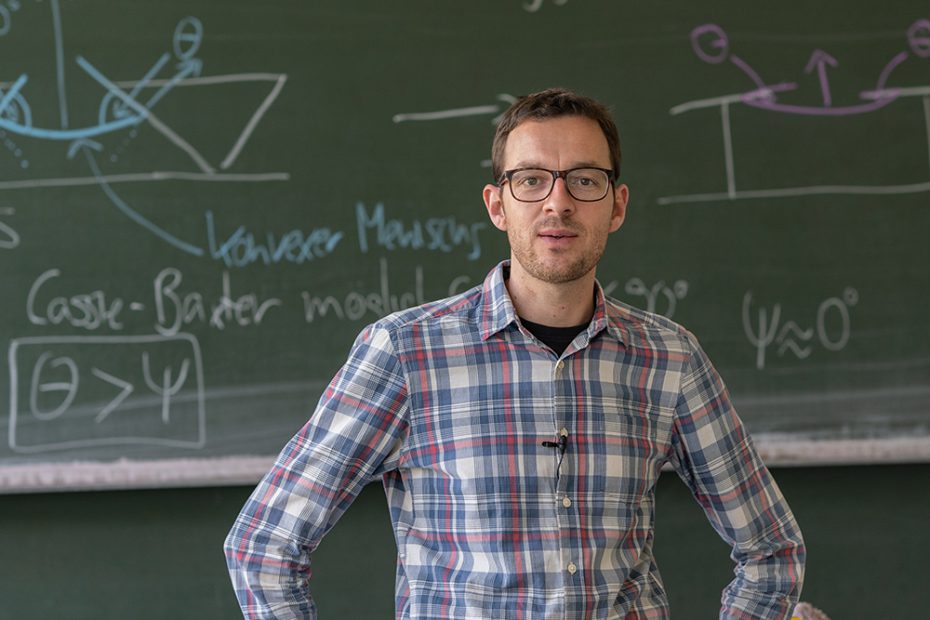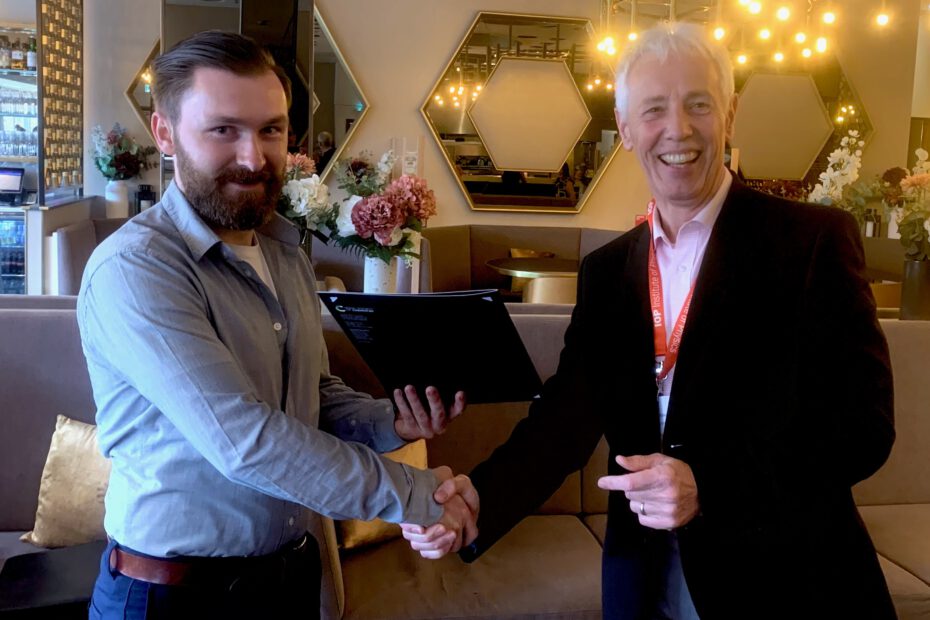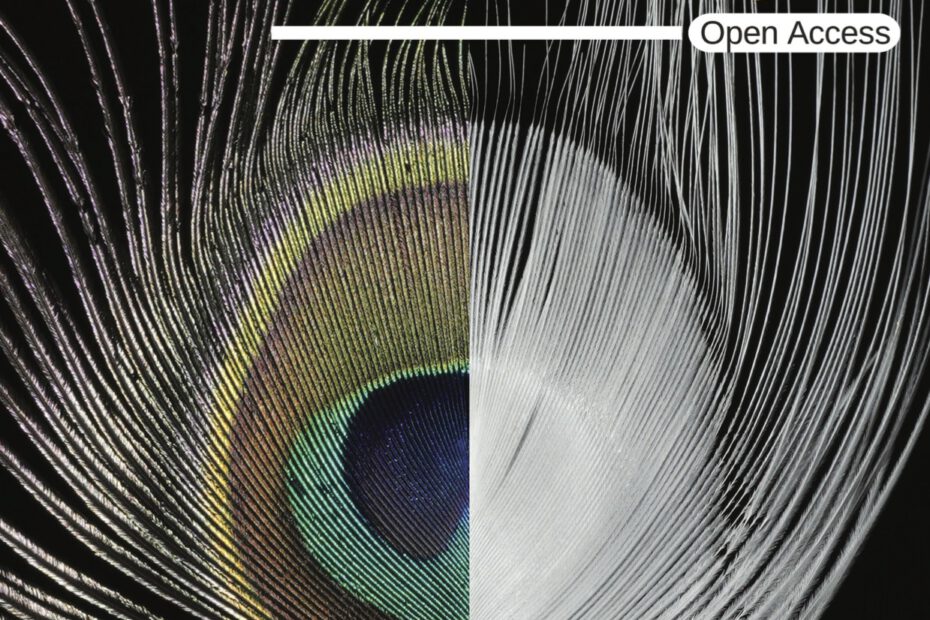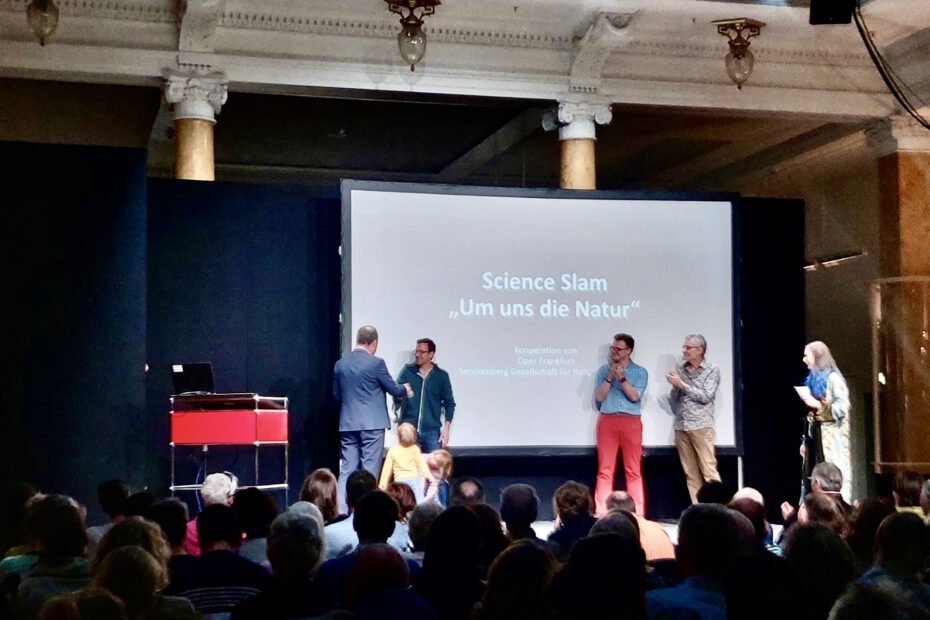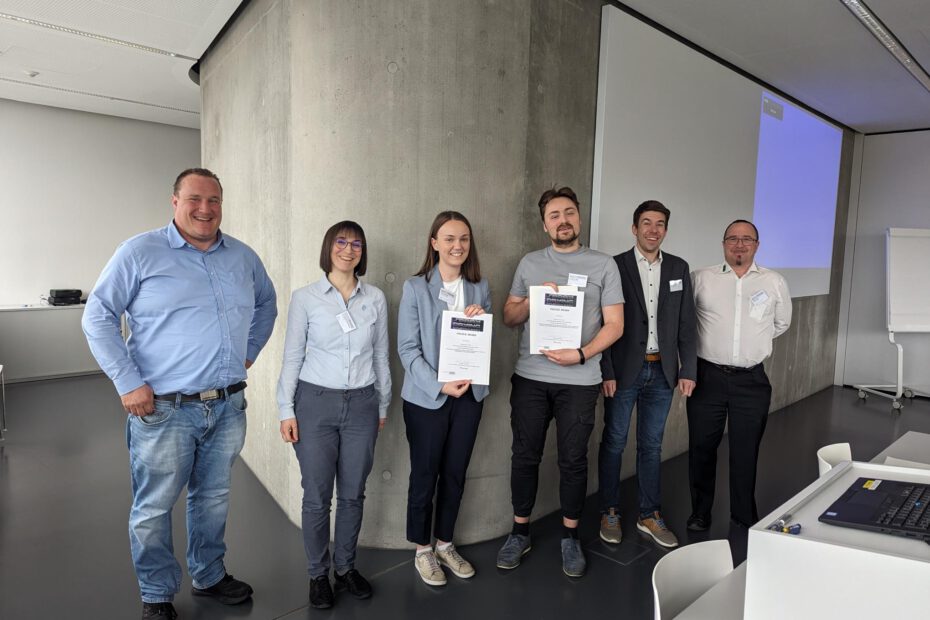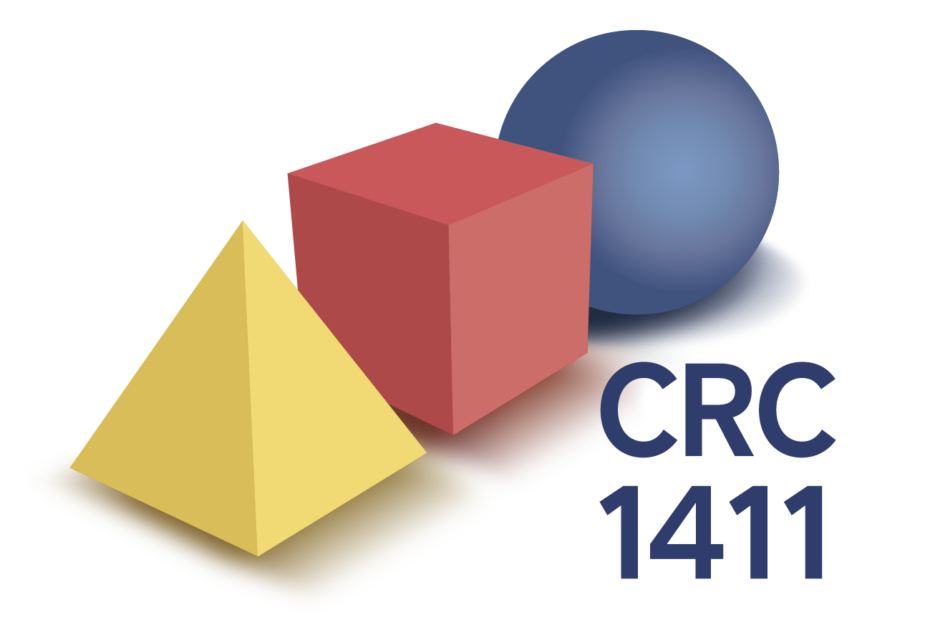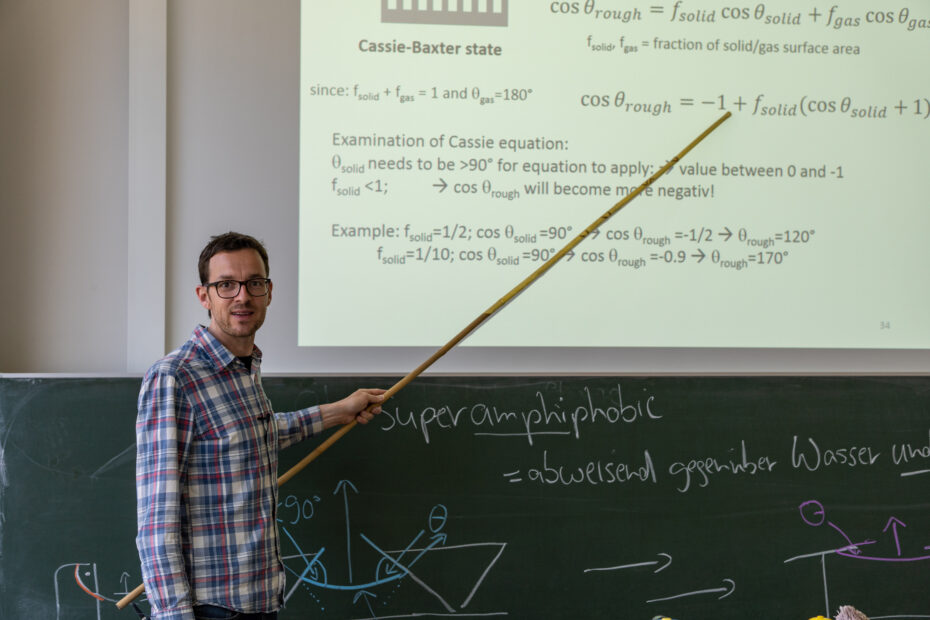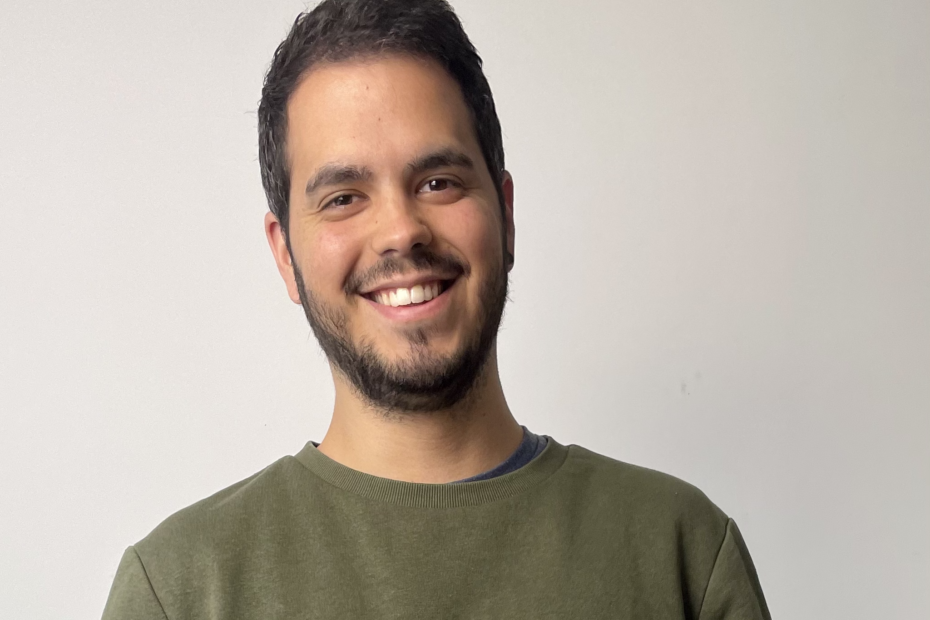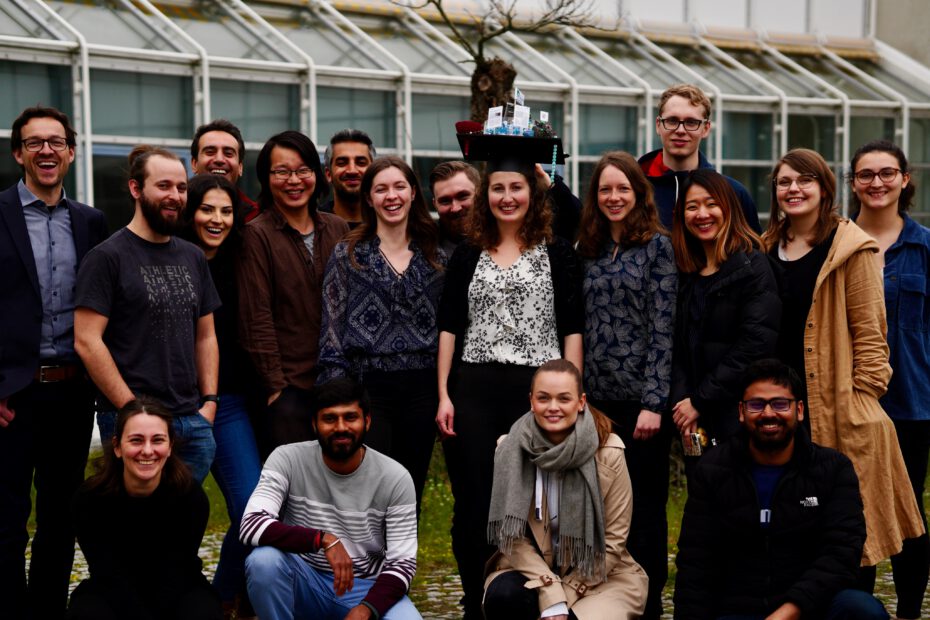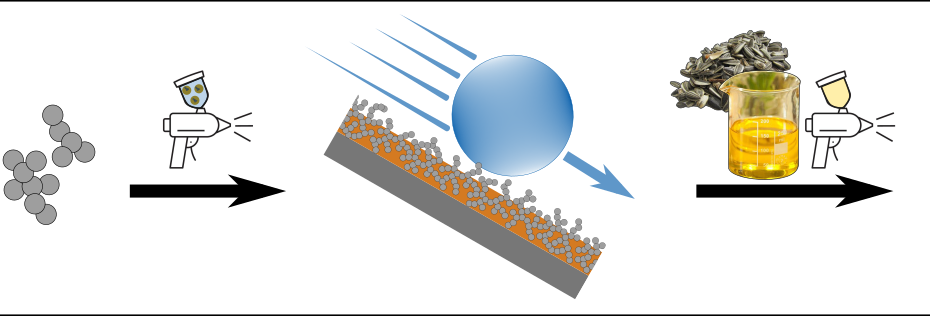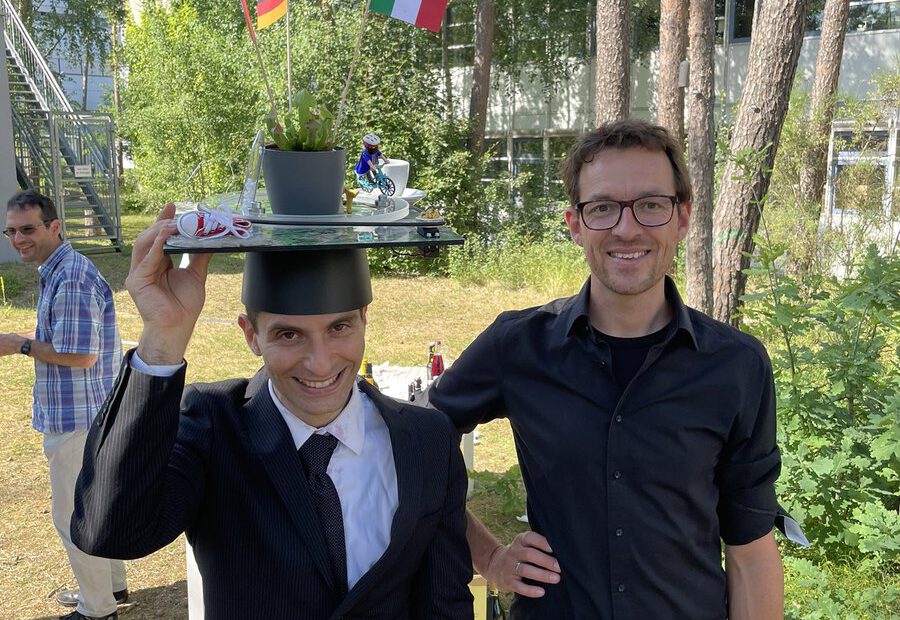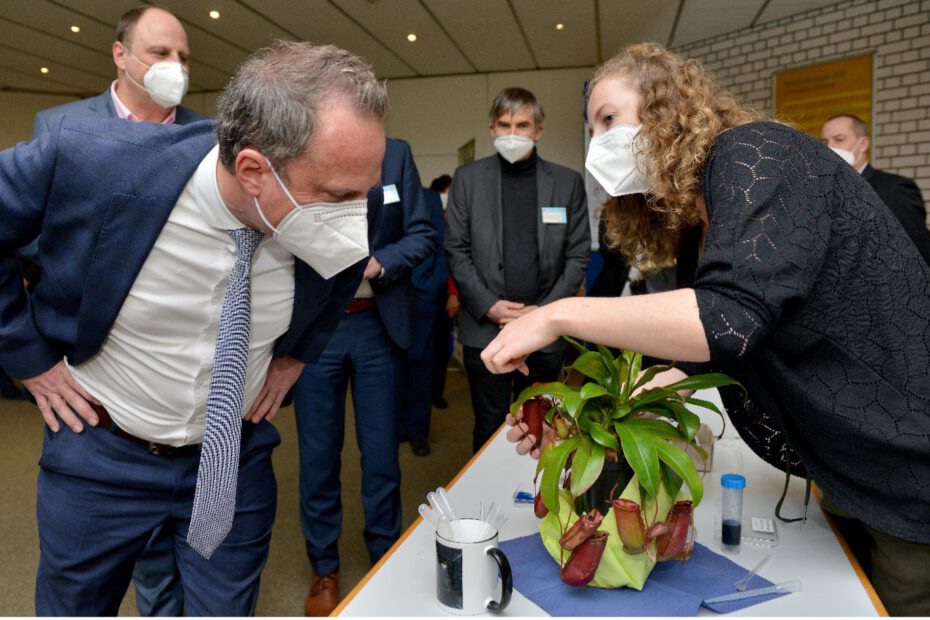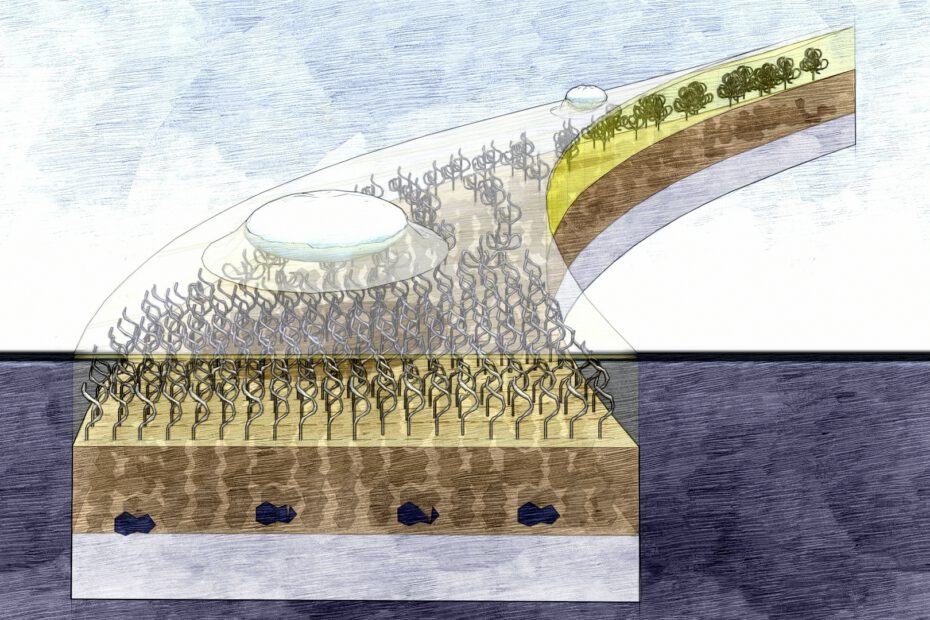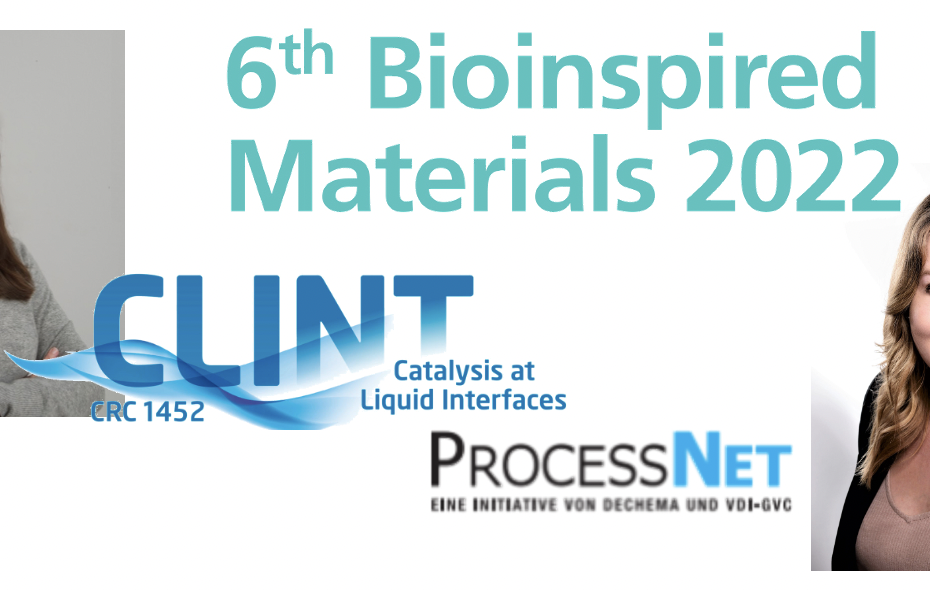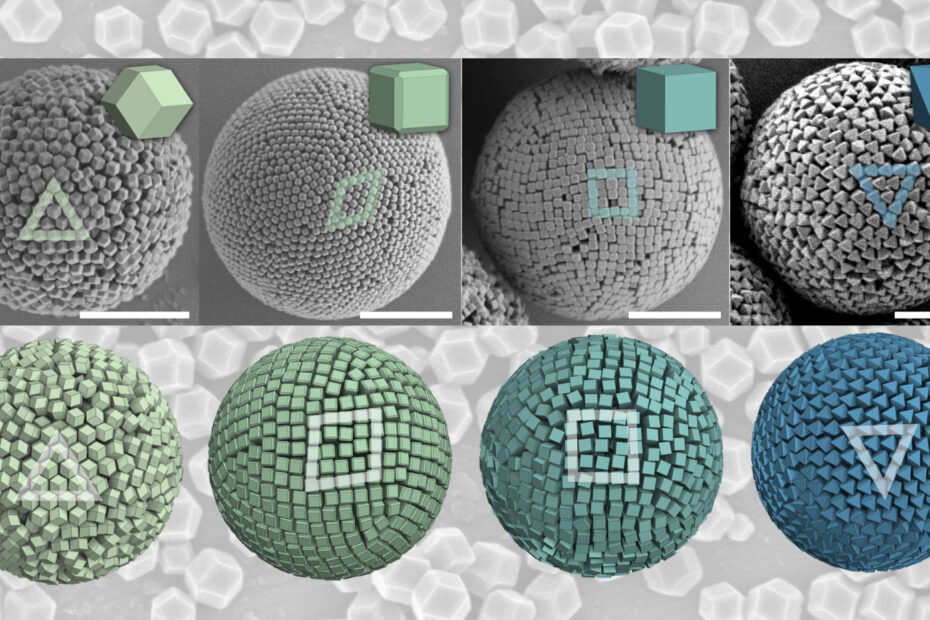Niki ranked respectively first and second with his lectures Basics in Nanomaterials and Nanotechnology 1 – Mechanical and Optical Properties and Grenzflächen in der Biotechnologie in the winter semester 23/24 and in the summer semester 24. We are very happy to see that our lectures are very well received by students!
Carina’s and Gudrun’s recent article has been featured on the cover of Advanced Materials Interfaces! In this paper, we demonstrate how to enhance optical effects by integrating Polydopamine (PDA), a synthetic melanin, into photonic crystals. PDA is incorporated in two ways: by gradually increasing PDA shells in core-shell particles while maintaining a constant total diameter to create homogeneous crystals, and by co-assembling varying ratios of polystyrene (PS) and absorbing PS@PDA particles for heterogeneous crystals. Chromaticity analysis in the L*a*b* color sphere reveals structures with optimal color saturation. Simulations suggest that… Read More »Carina’s and Gudrun’s recent article has been featured on the cover of Advanced Materials Interfaces!
On April 15th Niki, assisted by early-career researcher Rebekka, presented how structural color works at the science slam »Um uns die Nature« jointly organized by the Senckenberg Gesellschaft für Naturforschung and the Frankfurter Museums-Gesellschaft e.V. at the Opera house in Frankfurt and was awarded the second Prize for his presentation!
Our Bachelor Student Sonja Schaller was awarded the first prize for her poster “Determining the Organization of Binary Colloidal Supraparticles by matters of Diffusiophoresis and Channel Formation” at the Spray Drying Symposium taking place in Würzburg on 09.04.2024. We are very proud of her achievement and looking forward to her successful thesis research outcome!
The German Research Foundation just announced that CRC1411 will receive funding until 2028 with Niki as a spokesperson. The long-term vision of CRC1411 is to develop particle systems with controlled size, shape and composition. The innovative approach in CRC1411 is is that these materials are first developed and optimized for specific product properties in computer models. In the second step, the computer then predicts optimal synthesis conditions that lead to particles with these desired properties. This approach reverses typical manufacturing processes and promises fast and resource-efficient access to functional particle-based… Read More »Collaborative Research Center CRC 1411 will be funded for another 4 years
Niki’s lecture “Grenzflächen in der Verfahrenstechnik” was again on the podium as one of the best rated lectures in the whole Technical Faculty! In this class Niki discusses interfaces in materials and process technologies, with plenty of examples from nature and technology. Read more about the class here.
Two CRC1411-related lectures taught by Prof. Nicolas Vogel were included in the “Bestenlisten”, with “Polymer Materials” ranking 2nd, and “Grenzflächen in der Biotechnologie” ranking 3rd in the whole TeckFac. These awards show how the results of the CRC1411 and LFG research contribute to the success of our teaching.
Catalysts are of utmost relevance for the production of chemicals and energy storage with hydrogen. Researchers at the Helmholtz Institute Erlangen-Nürnberg for Renewable Energy (HI ERN) and Friedrich-Alexander-Universität Erlangen-Nürnberg (FAU) have now discovered that the formation of bubbles in the pores of a catalyst can be essential for its activity. Their findings help to optimize catalyst materials for reactions in which gases are formed from liquids – and which play a central role in a future green hydrogen economy. Read more
Have you ever spilled your cup of coffee? You may have noticed how the coffee dries into an intriguing stain with a bright centre and a dark ring encircling it. This “coffee ring” forms because the liquid evaporates faster at the edges, inducing a flow from the droplet interior towards the outside. Suspended solid coffee particles thus accumulate at the drop edge, causing the characteristic ring pattern. In Nature Communications, we present a simple, yet versatile strategy to overcome the omnipresent coffee ring effect and achieve homogeneous drying patterns of… Read More »Marcel nat comm
Bionic innovation towards environmental protection – The successful end of our joined project BayBionik with the Bavarian State Ministry of the Environment and Consumer Protection was celebrated at a final event at the Bionicum in the Tiergarten Nürnberg. We presented our work on self-cleaning and sustainable surface coatings to the public and Staatsminister Thorsten Glauber. You can read the full article here.
From sticky mussel-inspired chemistry to the slippery liquid-infused surfaces, we could combine two bioinspired approaches with opposite interfacial properties to fabricate repellent surfaces with an in-situ self-functionalizing lubricant! New paper out in in ACS Appl. Mater. Interfaces! Read it here
We’re very happy our research caught some attention at the recent in-person events we attended! Teresa was awarded the best poster prize both at Processnet and Bioinspired Material 2022 and Giulia won the best talk award at the CLINT iRTG workshop. We’re glad our work on environmentally friendly repellent surface coatings in the frame of the BayBionik project carried out by Teresa and Giulia’s results on colloidal templated supports for liquid metal catalysts were so well received.
New paper by Teresa is published in Green Chemistry!In this work we introduce a simple and environmentally benign method to create functional coatings mimicking the lotus leaf and the pitcher plant in a scalable process. In contrast to conventional fabrication processes that typically require toxic components and elevated temperatures, we developed an aqueous dispersion-based, fluorine-free coating system that produces highly repellent surface coatings at ambient conditions. This work is a contribution to the Baybionik Projektverbund. Read the full paper here!
